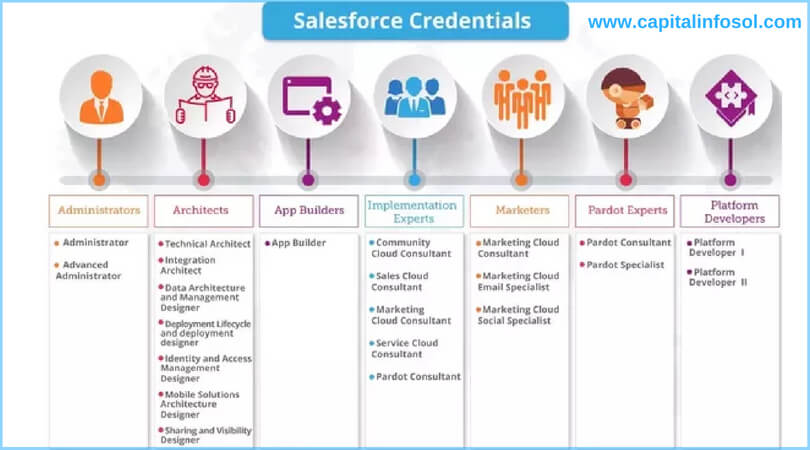
Advisor and adviser have different meanings. North America is where the term advisor is most commonly used. It is used for government positions, official job titles, formal writing, and formal writing. It is also a more common choice for the titles of professional advisors. It has a more formal look due to the Latin suffix of -or.
Style guide by AP
It is important that advisors and advisory staff are cited according to the AP style guidelines. First and last names should always be capitalized in most cases. Additionally, abbreviations of degrees should be written in lowercase. Academic Advising Community prefers AP styles. It is important to use em and en dashes when referring to titles.
If you have an option of using advisor instead or advisor, it is best to avoid "advisor." The New York Times is an example of a newspaper that uses adviser over adviser. The AP Stylebook supports this decision. The New York Times disagrees with this decision. Advisors should be used more often within academic and professional circles. Some industries, such as financial services, use the Chicago Manual of Style. This is different from AP style.
Chicago Manual of Style
When writing, many editors follow the Chicago Manual of Style. Although there is no standard for spelling, the manual states that consistency should be maintained throughout a document. This means you should use the spelling preferred to the reader. However, there are some situations where you must use a different spelling. In professional letters, you might use the term "advisor", but in personal journals, you would use the term "adviser".

A third area for disagreement involves style. Style is another area of disagreement. A good style guide will provide guidance on spelling and using words correctly. It is also important to think about the use of terms specific to one institution.
Styles from the Associated Press
Journalists and editors who wish to be able to correctly write will find the AP Stylebook an indispensable guide. The Associated Press Stylebook, or The Associated Press Briefing about Media Law, is the full name of the AP Stylebook. It was written by American journalists to the Associated Press. It has been a key reference point for the media and has become a standard for journalists around the world.
Using AP style will help ensure your writing is clear and concise. This style makes it easier for journalists and allows you to communicate with them in a common language. Many corporations and PR agencies require their copyeditors take an AP style test. You will increase your chances of getting positive media coverage and being noticed by ensuring your writing follows the AP style.
Definition of adviser vs advisor
Two meanings of the word adviser are possible. Depending on the context, the word adviser can mean both a person and an organization. An adviser is someone who gives advice to someone else. It is also used in verb form and is commonly abbreviated as advisor. It is often found in academic work and official titles. It can also be found in professional titles such as financial advisor or national security advisor.
The word advisor is used most often in the United States for formal writing, academic contexts, and job titles. It's also used in government roles, though it varies by region. The word adviser is most commonly used in the US for professional advisers.

Spelling differences
Although adviser sounds very similar, they are actually spelled differently. The U.S. has more advisers than Europe and some newspapers prefer the -er ending to their names. It is also used more often in U.S. academic titles. Both spellings can be used in the correct context.
The two titles may be held by the same person. However, adviser is more frequently used in the United States as well as in some official contexts. Some grammarians think adviser is formaler than adviser. However, adviser and adviser share the same meaning despite their differences. They differ only in the way they are spelled and how they are used in certain contexts.
FAQ
What skills will I need to be a consultant?
Consultants should be able to communicate effectively and have excellent analytical skills. This is important because you are working on projects where you may not know exactly what you are doing. You must learn how to manage people and solve problems quickly.
Communication skills are essential. Most clients expect an answer within 24hrs. If they don't hear anything, it is likely that they aren't interested in you. It is important to keep them updated and make sure they fully understand the situation.
What can I expect from my consultant?
Once you select your consultant, you should expect to hear back from them within a few days. They will request information about your company including its mission and goals, products, services, budget, and other pertinent details. After receiving this information, they will prepare a proposal outlining their scope of work, estimated timeline, fees, deliverables and milestones.
If everything looks good, then the two parties will negotiate a written contract. The terms of the contract will depend on the type of relationship between the two parties (e.g., employer-employee, employer-independent contractor).
If everything goes as planned, the consultant may begin to work immediately. The consultant will have full access to your files and resources. You'll also have access to their skills and knowledge.
However, don't assume that just because someone is a consultant that s/he knows everything. It takes practice and hard work to become an expert in the field you are consulting. Don't expect your consultant know everything about your company.
What happens when the consultant finishes his job?
After the consultant has completed the work, they will submit a final document detailing the results. This report contains all relevant information, such as project timelines and deliverables.
You will then review the report to determine if the consultant fulfilled your expectations. If you are not satisfied with the consultant's report, you have the option to ask for modifications or to terminate your contract.
Statistics
- Over 50% of consultants get their first consulting client through a referral from their network. (consultingsuccess.com)
- WHY choose me: Why your ideal client should choose you (ex: 10 years of experience and 6-week program has helped over 20 clients boost their sales by an average of 33% in 6 months). (consultingsuccess.com)
- "From there, I told them my rates were going up 25%, this is the new hourly rate, and every single one of them said 'done, fine.' (nerdwallet.com)
- Over 62% of consultants were dissatisfied with their former jobs before starting their consulting business. (consultingsuccess.com)
- My 10 years of experience and 6-step program have helped over 20 clients boost their sales by an average of 33% in 6 months. (consultingsuccess.com)
External Links
How To
How Do I Find A Good Consultant?
It is important to understand what you are looking for in a consultant before you can find one. Do you want them helping you improve your website's performance or not? Do you want them to optimize your site to rank higher in search engines? Perhaps you simply need someone to tell you if your current host provider is having issues. You should know the type of services that you require before you start looking at other companies. There are many consultants out there who claim they can provide these services, but only a few actually live up to their claims. How do you choose the right consultant? These are some things you should consider when choosing a consultant.
-
Get referrals. This is probably one of the best ways to find a consultant. You don't want to hire someone you've never heard of before because you'll likely pay too much. However, you don't want work with someone who has a bad reputation. If you're lucky enough to get referrals from people you trust, then great! Even if you don’t have any referrals, you can still look online for reviews. Look for testimonials and case studies where clients have used your service.
-
Ask around. Many people don’t know that they could gain from consulting. They believe that because they're doing well, they don’t need to make any changes. However, this is usually untrue. Even if you have great results right now you probably haven't been keeping pace with new technologies or trends. If you continue to rely on outdated methods, your business will be unable to grow. It is always worthwhile to ask around for recommendations of good consultants.
-
Verify their qualifications. You don't need to worry about whether they are building a website or an eCommerce store worth millions. It doesn't matter if they are qualified for the task or not; make sure they are knowledgeable in the field.
-
Find out what kind of projects they specialize in. It is a common misconception that everyone can manage everything. Certain areas may require special training or education. You wouldn't hire someone who can build a WordPress theme if they aren't experts in Drupal. It is the same for programming languages, graphic design, and so on. Ask the designer what kind of projects they have worked on in the past.
-
It is important to know what the charges are. We said that you don't need to pay too much for consulting services. You also don’t want to spend too little. Consultants come in many sizes and shapes. Some charge hourly rates while others bill per project. You can save money by knowing upfront exactly what you will be paying.
-
What do they offer? Are they available for free consultations Are they willing to give advice about how to set up your own system or provide other assistance? Can they guarantee your site will rank higher if you work with them? You can cancel the consultation without penalty if your opinion is not what you wanted.
-
Also, ask if discounts are available for multiple months and years. Many consultants offer discounted pricing over extended periods. Even though you do not necessarily have to commit to a whole year of service, you might still be able to benefit from any specials they offer.